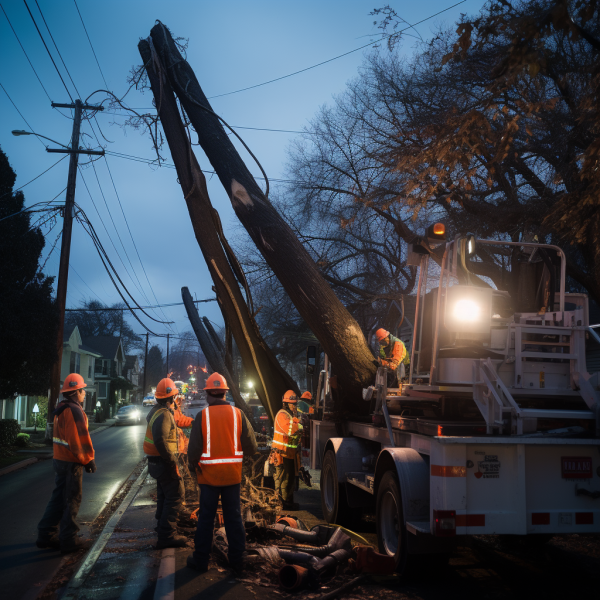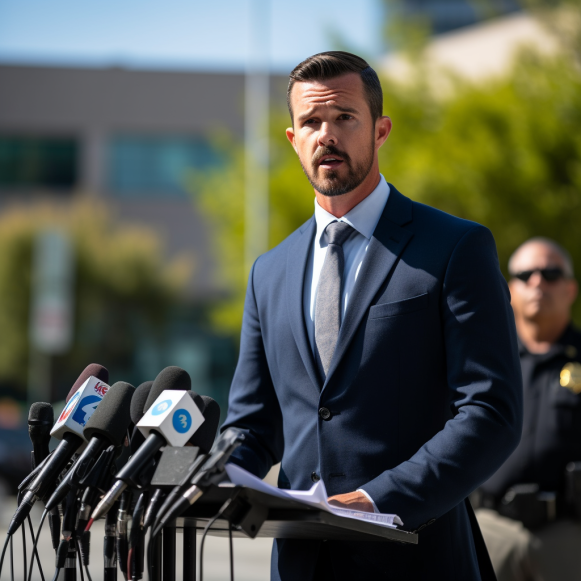Q&A: California Rep. Jimmy Panetta was in the Middle East when Hamas attacked Israel. Here are his observations
Panetta was part of a congressional delegation in the Middle East when the war broke out
Rep. Jimmy Panetta, D-Carmel Valley, arrived in the Middle East last week with lofty goals of bringing Israel and Saudi Arabia one step closer to a peace deal that seemed unthinkable just a few years ago.
He returned to the United States on Wednesday, having seen all of his plans fall apart in a single day.
“We went on the trip to talk about peace, but we left the area talking about war,” Panetta was quoted as saying.
The Palestinian group Hamas launched an unprecedented attack on Israel on Saturday, while Panetta and a bipartisan group of US representatives and senators were in nearby Saudi Arabia. Until then, their goal had been to tour the Middle East as part of the US effort to secure a series of peace treaties in the region between Israel and several neighboring nations, including Saudi Arabia. Following the attacks, Panetta and his colleagues drove into Israel to meet with Americans affected by the fighting, as well as Israeli leaders such as Israeli Prime Minister Benjamin Netanyahu, Foreign Minister Eli Cohen, and opposition leader Yair Lapid.
Panetta praised Israel’s resolve and expressed hope that a peace deal between Israel and Saudi Arabia, which has refused to formally recognize Israel since its inception in 1948, could be salvaged in some form. The following are edited excerpts from that interview for brevity and clarity.
Q:In Israel, you met with Americans as well as people whose relatives were abducted by Hamas during Saturday’s attack. What did they say to you?
Panetta: One of the Americans stands out; they had two sons in the Israeli Defense Forces, and their best friend was killed in this heinous attack. That hasn’t stopped them. This has encouraged them to continue their defense of Israel. So it was very interesting to hear an American citizen speak in that manner about his two sons, who are serving and potentially fighting for Israel and its defense.
We also met a brother and sister whose father had been kidnapped from the most southern town attacked by Hamas during the invasion. The father and mother (in their 80s) were in a safe room because they are trained to go into these safe rooms. But keep in mind that these safe rooms are designed to protect against rocket attacks rather than terrorist attacks like this one. Because they want to be able to access the safe room after the rocket attack, there are no locks on these doors. Terrorists broke into their homes, discovered the safe room, and attempted to open the door. In order to protect the mother, the father basically exited the safe room, which is when he was kidnapped and taken away.
What struck me was this brother’s and sister’s determination, as well as their belief that their father is still alive — they’re just concerned about him getting his medication. And that, to me, exemplifies the determination that all Israelis have in dealing with these types of evil attacks on their country.
Q: What did the Israeli officials with whom you spoke request? And what did you say to them?
Panetta: What we heard almost consistently from everyone was how traumatic this was. At the same time, we heard about how determined they are and will remain moving forward. And hoping for the US’s continued support in these efforts to ensure that they defend themselves against Hamas and continue to work hard to destroy Hamas. That is exactly what we will do in the coming months and years. But it will not be easy; it will be a difficult path forward.
Q: Do you have any hope or expectation that peace talks between Israel and other nearby countries, such as Saudi Arabia, will continue? Or are you concerned that these attacks will jeopardize your efforts?
Panetta: I believe that was part of Hamas’ motivation for carrying out this bloodthirsty attack, in the sense that they wanted to kill Jews, the Jewish society, and peace. The peace process is most likely on hold at the moment. But, based on our discussions with the leadership — not just in Israel, but throughout the Middle East — I believe the people want to take that path, to achieve peace in that region through these agreements.
Q: At the moment, it appears that little, if any, humanitarian aid is being allowed into Gaza to assist civilians. Do you have any concerns about Israel’s response and the lack of humanitarian aid reaching Gaza? And do you have any red lines in this regard?
Panetta: It’s obviously horrible what we’re seeing in any war — from Gaza to Ukraine — and it’s obviously very, very difficult in terms of civilian casualties. That is the very last thing you want. We made that clear in our meeting with the Israeli leadership, and we were assured that they would follow international law and the laws of war when it came to discretion and proportionality. That is why you see us, even the US, essentially telling civilians in Gaza to leave. You must understand that this is not a Palestinian issue. It’s all about Hamas here.
Q: In terms of needs, what did you hear from Israelis? And, given that the House of Representatives has yet to select a new Speaker, what is your current level of concern about Congress’ ability to act?
Panetta: In terms of US support, there is already a pipeline of support flowing into Israel (via prior agreements). There will obviously be more specific assistance required in terms of precision-guided missiles to ensure they limit casualties in Gaza, but also the replenishment of the Iron Dome. So that will necessitate supplemental funding. That requires the presence of a speaker. As a result, it is up to Republicans to band together and elect a new speaker. If they are unable to do so, they must be aware that they can approach Democrats in order to move forward with a shared governing agreement. But we’re not seeing those kinds of gestures from Republicans right now.





